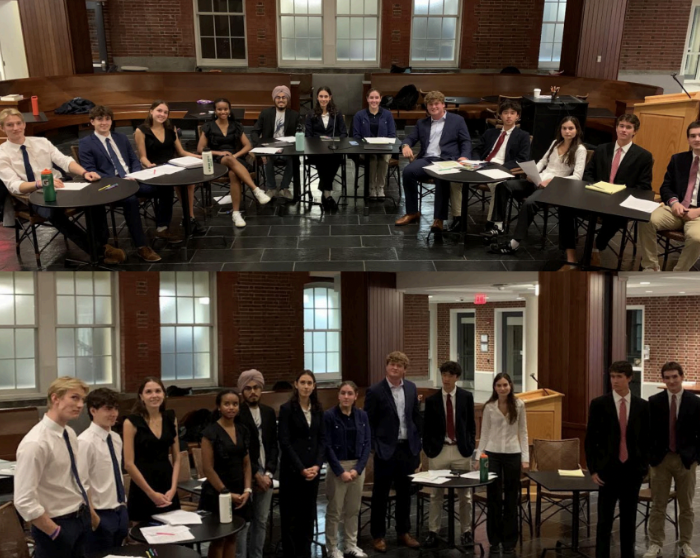Amid the bustle of our Groton routines, it is often easy to forget that the resources we are given for our education have been made possible by the dedication of Groton’s donors. And with a historic $15 million from an anonymous alumni donor—the largest donation in the school’s history—Groton will be set on a path of continued financial stability and opportunity.
All the money donated by the anonymous donor was given to help repay Groton’s debt, much of which consists of the bonds taken out to fund the Schoolhouse renovation project in 2015. Half of the donation—$7.5 million—will be given to Groton in the upcoming fiscal year, and the remainder will be issued through the course of the next several years.
While it is customary for many donors to give such large donations towards erecting new buildings or funding financial aid, Dean of Strategic Operations Kate Machan explained that paying for the school’s debt is an overlooked yet critical action to ensure Groton’s continued long-term stability. “This gift will have an enormous impact on flexibility and financial stability far into the future,” Ms. Machan said.
The donor explained that his decision to target the school’s debt was inspired by two Groton initiatives. The first is the debt plan the Board of Trustees adopted in November 2023 to ensure any future debt has an explicit plan to be repaid, and the second is the GRAIN (GRoton Affordability and INclusion) initiative ensuring cost containment and affordable tuition for all. Ms. Machan explained that the donor was particularly inspired by Groton’s commitment to affordable education for the “talented missing middle:” the students who are priced out of the independent school world because they don’t qualify to receive the aid they require to attend.
Though Ms. Machan clarified that Groton’s debt was not unusually burdensome and is in line with standard independent school financial practices, Headmaster Temba Maqubela added that “financial stability allows us to dream” and “you can’t dream that much when you have too much debt.”
The uniqueness of this donation is compounded by the donor’s decision to stay anonymous, an act Mr. Maqubela described as “unassuming, selfless, and heroic.” Ms. Machan explained that the donor is a “philanthropic person with strong ties to the school” who has been a consistent supporter of Groton for decades and served as a form volunteer to encourage his formmates to give to the school. Director of Development and Alumni Affairs John MacEachern, who worked for several years with this donor and is familiar with his selfless character, added that “[the donor] is unusual—in a very positive way—in the sense that he’s not motivated by recognition by naming something, he’s motivated more by his desire to help the school.”
In the donor’s own words, his commitment to giving to Groton comes from a place of admiration for the school’s mission of “excellence and service… qualities that are distinctive and sorely needed in today’s world.” The donor added, “By helping reduce and eventually remove a significant annual cost burden on the school, the donation will help the trustees and administration ensure the its financial strength long into the future and thereby sustain its ability to continue its vital mission of readying its graduates—to use the words of its founder, Reverend Endicott Peabody—‘for the active work of life.’”
“There are few better ways to love a place than to donate,” said Mr. Maqubela. “I hope [the donor’s] selflessness inspires you all.”






